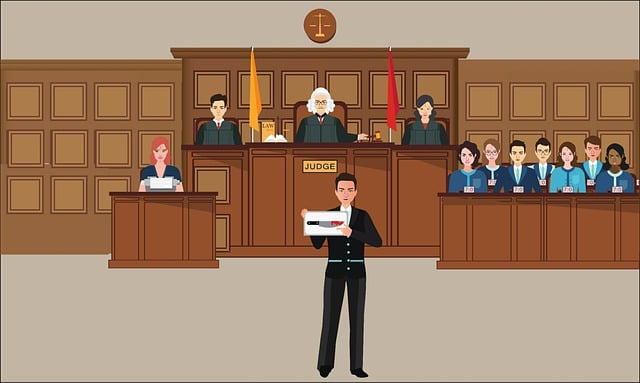Prosecutor strategies in the plea bargaining process are vital for combating securities scams, offering reduced sentences or charge dismissals to disrupt fraudulent activities targeting investors, philanthropists, and political communities. By leveraging threats, understanding evidence & defendant motivations, prosecutors secure confessions and maintain market integrity while protecting investment interests. Case studies highlighting successful strategies serve as deterrents, fostering transparency and security in the investment environment.
“In the high-stakes world of securities trading, investors are often targets of sophisticated scams. This article unravels the web of common securities frauds, highlighting critical red flags for the vigilant eye. We explore the crucial role of prosecutors in exposing fraudulent schemes and delve into plea bargaining strategies that balance justice with accountability. With an emphasis on legal measures to protect investors, we present compelling case studies showcasing successful prosecutions of financial crimes, all while shedding light on prosecutor strategies within the plea bargaining process.”
- Common Securities Scams: Recognizing Red Flags
- Prosecutor's Role in Uncovering Fraudulent Schemes
- Plea Bargaining: Strategies for Justice and Accountability
- Protecting Investors: Legal Measures in Place
- Case Studies: Successful Prosecution of Financial Crimes
Common Securities Scams: Recognizing Red Flags

Securities scams are a significant concern for investors, often involving sophisticated tactics to lure victims into fraudulent schemes. Recognizing red flags is crucial in protecting oneself from such deceptions. One common tactic used by scammers is the “pump and dump” method, where they artificially inflate the price of a stock through misleading promotions before selling their holdings, causing the stock’s value to plummet. Another scheme involves impersonating financial regulators or professionals to gain trust and manipulate investments.
Prosecutor strategies in plea bargaining play a vital role in addressing these high-stakes cases. By offering plea bargains with reduced sentences or even the complete dismissal of all charges, prosecutors aim to break the cycle of fraud while considering the defendant’s cooperation. This approach not only helps restore justice but also ensures that resources are allocated efficiently within the legal system, particularly in dealing with fraudulent activities targeting the philanthropic and political communities.
Prosecutor's Role in Uncovering Fraudulent Schemes

In the battle against securities fraud, prosecutors play a pivotal role in exposing and prosecuting manipulative schemes. They employ strategic approaches, such as leveraging Prosecutor Strategies in Plea Bargaining Process, to uncover intricate fraudulent activities. By engaging in negotiations with defendants, prosecutors can secure confessions and vital information that lead to the dismantling of these illicit operations. This process often results in plea agreements, where the defendant agrees to cooperate with authorities in exchange for a reduced sentence or a complete dismissal of all charges, providing a powerful incentive for individuals involved in fraudulent practices to come forward.
Through these tactics, prosecutors not only hold criminals accountable but also help protect investors by ensuring that those responsible for securities scams face legal consequences. This proactive approach is essential in maintaining the integrity of financial markets and fostering trust among investors, shielding them from the dangers of deceptive schemes targeting their hard-earned money.
Plea Bargaining: Strategies for Justice and Accountability

In the pursuit of justice within the securities industry, plea bargaining plays a pivotal role as a strategy for both prosecutors and defendants alike. This process involves negotiating guilty pleas in exchange for reduced sentences or favorable terms, aiming to streamline the legal proceedings while still ensuring accountability. Prosecutor strategies in the plea bargaining process are multifaceted, involving careful assessment of evidence, understanding defendant motivations, and crafting agreements that balance public interest with potential benefits for white-collar defendants.
A key aspect of prosecutor strategies is leveraging the threat of jury trials, which can be lengthy and costly for both sides. By presenting compelling evidence and negotiating favorable plea deals, prosecutors can avoid the unpredictability of jury decisions. For their clients, this means reduced legal exposure and a chance to mitigate damage to their reputations. However, it’s crucial that any agreement is fair and does not impede future efforts to uncover and prevent securities fraud, ensuring the integrity of the financial markets remains intact.
Protecting Investors: Legal Measures in Place

Protecting investors from securities scams is a multifaceted effort involving legal measures across all stages of the investigative and enforcement process. When a potential scam is identified, general criminal defense strategies come into play. These include gathering evidence, interviewing witnesses, and analyzing financial records to build a strong case against the perpetrators. Prosecutor strategies in plea bargaining can significantly impact high-stakes cases, where substantial penalties and restitution are at stake.
Legal professionals play a crucial role in navigating these complexities, ensuring that investors’ rights are upheld. By employing robust investigative techniques and understanding the nuances of the legal system, they help deliver justice while safeguarding investor interests. In the event of a successful prosecution, the outcome can serve as a deterrent for future securities fraud, ultimately fostering a more transparent and secure investment environment.
Case Studies: Successful Prosecution of Financial Crimes

In the fight against securities scams, case studies of successful prosecutions play a pivotal role in demonstrating the effectiveness of legal strategies. Prosecutor strategies in plea bargaining have proven to be instrumental in achieving winning challenging defense verdicts. Through meticulous investigation and strategic negotiations, prosecutors secure complete dismissals of all charges in some cases, showcasing the power of the justice system in holding wrongdoers accountable.
These successful prosecutions not only serve as a deterrent but also highlight the importance of white-collar defense strategies. By understanding and leveraging these tactics, both legal professionals and investors can better navigate high-stakes financial cases, ensuring fair outcomes and protecting their interests in the complex world of securities law.
Securities scams, a pervasive threat to investors, have evolved with technological advancements. Recognizing red flags and understanding prosecutor strategies in the plea bargaining process are pivotal for justice and accountability. Legal measures, including successful case studies of financial crime prosecutions, protect investors and serve as deterrents. By staying informed and leveraging available resources, individuals can safeguard their investments and navigate the complex world of securities with enhanced vigilance.






